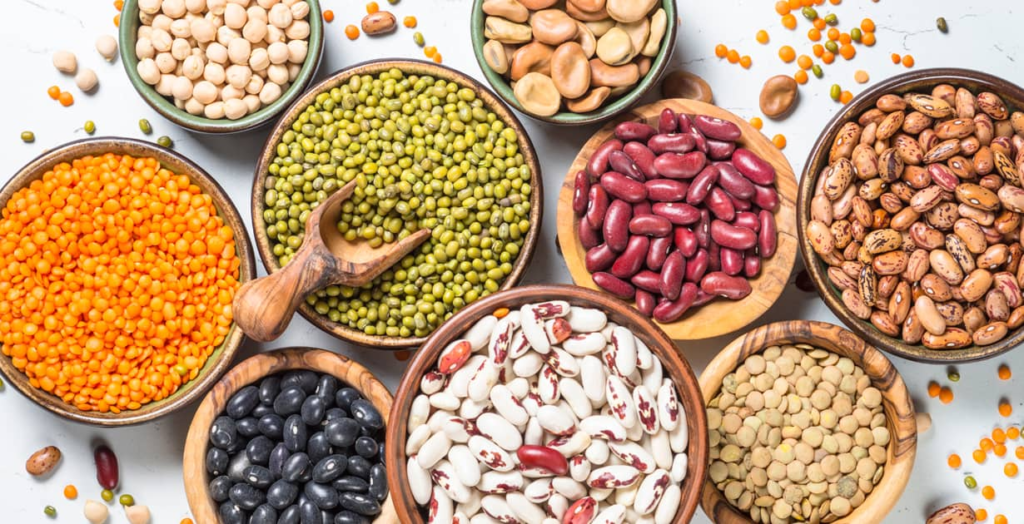
Introduction
Carbohydrates are one of the most important nutrients your body needs to function. Known as the body’s primary source of energy, they power everything from your brain to your muscles. Understanding carbohydrates and their role in your health is essential for maintaining an active and balanced lifestyle.
What are carbohydrates?
Carbohydrates, often referred to as “carbs,” are molecules made of carbon, hydrogen, and oxygen. They are found in a wide variety of foods, including fruits, vegetables, grains, and dairy products. When consumed, your body converts carbohydrates into glucose (sugar), which serves as fuel for your cells.

Types of Carbohydrates
Carbohydrates, the essential fuel your body needs for energy, come in various forms, each serving a specific purpose in your diet. Understanding the different types of carbohydrates can help you make informed food choices for better health and sustained energy.
The Three Main Types of Carbohydrates
- Simple Carbohydrates
Simple carbohydrates, or “sugars,” are made up of one or two sugar molecules. They are quickly absorbed by the body, providing instant energy but often leading to a rapid energy crash.
Sources: Table sugar, honey, candy, sugary beverages, and some fruits.
Pros and Cons: While they can give you a quick energy boost, relying too much on simple carbs can lead to weight gain and energy instability.

- Complex Carbohydrates
Complex carbohydrates consist of long chains of sugar molecules, which take longer to digest. This results in a steady release of energy over time, making them ideal for maintaining stamina throughout the day.
Sources: whole grains (like brown rice, quinoa, and oats), starchy vegetables (like potatoes and corn), and legumes (like lentils and chickpeas).
Benefits: These carbohydrates are nutrient-dense and rich in vitamins, minerals, and fiber, which support overall health and digestion.

- Fiber
Fiber is a unique type of carbohydrate that your body cannot digest. However, it plays a crucial role in maintaining digestive health, stabilizing blood sugar levels, and promoting a feeling of fullness.
Sources: fruits (like apples and berries), vegetables (like broccoli and carrots), whole grains, and legumes.
Health Benefits: A diet rich in fiber can reduce the risk of heart disease, aid in weight management, and improve gut health.

The Importance of Balancing Carbohydrates
While carbohydrates are essential for energy, it’s important to balance your intake. Prioritize complex carbohydrates and fiber for sustained energy and long-term health. Minimize the consumption of refined and sugary simple carbs, which offer little nutritional value.

Why Does Your Body Need Carbohydrates?
Carbohydrates, the essential fuel your body needs for energy, play a vital role in keeping you active, focused, and healthy. These nutrients are more than just a source of calories—they are fundamental for the proper functioning of your body and mind.
Key Reasons Your Body Needs Carbohydrates
- Primary Energy Source
Carbohydrates are your body’s main source of energy. When you consume carbs, they are broken down into glucose, which fuels your cells, tissues, and organs. This energy is essential for daily activities, exercise, and even resting metabolic functions.

2. Brain Function
Your brain relies on glucose to operate efficiently. Carbohydrates ensure a steady supply of energy, improving focus, memory, and overall cognitive performance. Skipping carbs can lead to mental fatigue and difficulty concentrating.

- Physical Performance
For athletes or anyone engaging in physical activity, carbohydrates are indispensable. They provide the quick energy needed during exercise and help replenish glycogen stores in your muscles after activity. This recovery process supports endurance and performance.

5. Supports a Healthy Metabolism
Carbohydrates help regulate your metabolism by preventing the breakdown of muscle protein for energy. This allows your body to preserve muscle mass, which is important for strength and overall health.

6. Improved Digestion
Fiber, a type of carbohydrate, promotes healthy digestion. It prevents constipation, supports gut health, and helps maintain a healthy balance of gut bacteria.

Choosing the Right Carbohydrates
Not all carbohydrates are created equal. Focus on nutrient-dense sources like whole grains, fruits, vegetables, and legumes. Avoid excessive consumption of refined carbs like sugary snacks and processed foods, which can lead to energy spikes and crashes.

Good Carbs vs. Bad Carbs
Carbohydrates: The essential fuel your body needs for energy can be divided into two main categories: good carbs and bad carbs. Understanding the difference is crucial for making healthier dietary choices and maintaining consistent energy levels.
What Are Good Carbs?
Good carbs are nutrient dense, providing your body with sustained energy, fiber, vitamins, and minerals. They are found in whole, unprocessed foods that support your overall health.
Characteristics of Good Carbs:
- Rich in fiber for better digestion.
- Provide slow-releasing energy, preventing blood sugar spikes.
- Contain essential nutrients like vitamins, minerals, and antioxidants.
Sources of Good Carbs:
- Whole grains: brown rice, oats, quinoa, and whole-grain bread.
- Fruits: apples, bananas, and berries.
- Vegetables: sweet potatoes, carrots, and spinach.
- Legumes: lentils, black beans, and chickpeas.

What Are Bad Carbs?
Bad carbs are heavily processed, offering little nutritional value and quick energy spikes followed by crashes.
Characteristics of Bad Carbs:
- Low in fiber and nutrients.
- Lead to blood sugar spikes and drops.
- Often contain added sugars and unhealthy fats.
- Sources of Bad Carbs:
Sources of Bad Carbs:
- Sugary snacks: candy, cookies, and cakes.
- Processed foods: white bread, pasta, and pastries.
- Sugary drinks: sodas and energy drinks.

Why Does the Difference Matter?
Choosing good carbs over bad carbs promotes better health and energy levels.
Benefits of Good Carbs:
Steady Energy: Avoid energy crashes by relying on slow-digesting carbs.
Weight Management: Fiber-rich carbs help you feel full longer.
Improved Health: Reduce risks of diabetes and heart disease.

Conclusion
Always prioritize good carbohydrates like whole grains, fruits, and vegetables for lasting energy and overall well-being. Avoid bad carbs from sugary and processed foods to prevent health issues.
How to Incorporate Healthy Carbs Into Your Diet?
Carbohydrates, the essential fuel your body needs for energy, can be a vital part of a balanced diet when you choose healthy options. Here’s how you can include nutrient-rich carbs in your daily meals while reaping their health benefits.
1: Choose Whole Grains Over Refined Grains
Switch to whole-grain options like brown rice, quinoa, oatmeal, and whole-grain bread. These are rich in fiber, vitamins, and minerals, offering sustained energy and better digestion.

2: Incorporate Fruits and Vegetables
Fruits and vegetables are excellent sources of healthy carbs. Add berries to your breakfast, snack on carrots, or enjoy a side of sweet potatoes with your meals.

3: Add Legumes to Your Meals
Beans, lentils, and chickpeas are rich in healthy carbs, fiber, and protein. Use them in soups, salads, or as a side dish for a nutritious boost.

4: Snack on Nuts and Seeds
Nuts and seeds like almonds, chia seeds, and sunflower seeds offer healthy carbs along with healthy fats and protein. These are perfect for an energy-boosting snack.

5: Include Dairy or Plant-Based Alternatives
Low-fat yogurt, milk, or plant-based alternatives like almond or soy milk contain healthy carbs and other essential nutrients. These can be part of your breakfast or snacks.

6: Limit Added Sugars and Processed Foods
Cut back on sugary snacks and processed foods. Replace them with whole-food carbs like fruits, whole grains, and legumes for better health and energy.

Common Myths About Carbohydrates
Carbohydrates, the essential fuel your body needs for energy, are often misunderstood. Many myths surround carbs, leading to confusion and misguided dietary choices. Let’s clear up these myths and understand the truth about carbohydrates.
Myth 1: Carbs Make You Gain Weight
One of the most common misconceptions is that eating carbs leads to weight gain. In reality, it’s the excess calories that cause weight gain, not carbohydrates themselves. Healthy carbs, such as those found in whole grains, fruits, and vegetables, are essential for energy and do not contribute to weight gain when consumed in moderation.

Myth 2: Carbs Are Bad for Your Health
Carbs are not inherently bad for you. The type of carbs you consume is what matters. Unprocessed, nutrient-dense carbs (like whole grains and vegetables) are good for your health and provide essential vitamins, minerals, and fiber. The key is choosing healthy carbs over processed ones.

Myth 3: Low-Carb Diets Are the Best for Weight Loss
While low-carb diets may help some people lose weight in the short term, they are not necessarily the best or most sustainable solution. Cutting out carbs can deprive your body of essential nutrients and energy. Instead, focusing on quality carbs like vegetables and whole grains can help you lose weight in a healthier way.

Myth 4: Carbs Should Be Avoided After a Certain Time
Some people believe that eating carbs after a certain time of day leads to weight gain. However, the time you eat is less important than the quality of the carbs you consume. If you choose healthy carbs, your body can process them efficiently at any time of day.

Myth 5: All Carbs Are the Same
Not all carbohydrates are created equal. Simple carbs (like those in candy and soda) are quickly digested and lead to energy spikes and crashes. On the other hand, complex carbs (like whole grains, legumes, and vegetables) digest slowly, providing long-lasting energy.

Myth 6: Carbs Are Only Found in Bread and Pasta
Many people associate carbs only with bread and pasta, but they are also found in a variety of healthy foods. Fruits, vegetables, legumes, and even dairy products are great sources of healthy carbs.

Conclusion: Carbohydrates – The Essential Fuel Your Body Needs for Energy
Carbohydrates: The essential fuel your body needs for energy, play a crucial role in maintaining your health and well-being. They provide the energy needed for daily activities, support proper digestion, and help your body function optimally. By choosing healthy, nutrient-dense carbs, you can fuel your body with long-lasting energy and enjoy a balanced diet.
Key Takeaways:
- Carbs are essential for energy: They provide the fuel your body needs to perform physical and mental tasks efficiently.
- Choose healthy carbs: Opt for whole grains, fruits, vegetables, and legumes to provide your body with necessary nutrients.
- Avoid processed carbs: Minimize the intake of sugary snacks and processed foods to maintain steady energy levels.
- Incorporate carbs into every meal: Healthy carbs should be part of each meal to keep your energy balanced throughout the day.
Incorporating healthy carbohydrates into your diet doesn’t have to be complicated. By choosing nutrient-rich options and being mindful of portion sizes, you can ensure that carbohydrates: The essential fuel your body needs for energy are part of a well-rounded diet that supports your health goals.







